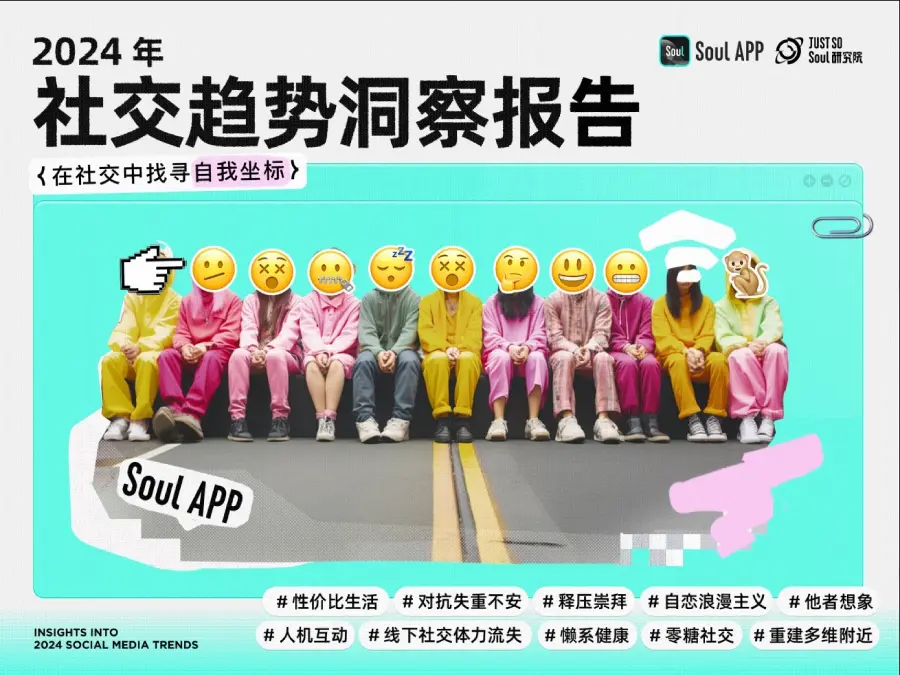How are Youngsters Handling Emotional, Mental, and Physical Wellbeing? Soul Zhang Lu has the Answers
By TOI Desk Report
April 5, 2024
Update on : April 9, 2024

The world is hurtling through a digital age. Gen Z is at the very cusp of this transformation hence they are compelled to navigate unprecedented challenges. So, the founder of Soul Zhang Lu got the platform’s research team to conduct a survey to understand how Zoomers are responding to these challenges and how these have impacted their approach to physical and mental wellbeing.
Just So Soul, which is the research wing of Soul App, got in touch with 3800 app users to understand how youngsters are faring given the seismic shift in the professional, personal, and technological landscapes witnessed in 2023. Because 90% of the survey participants were in the age group of 18 to 27 years, their responses were a barometer of what is happening in the lives and minds of youngsters across China.
A surprising revelation that came from the survey was that youngsters certainly don’t have a picture-perfect, laid-back, and non-conflicted life. Older generations typically perceive that young people today enjoy a stress-free, easy, and joyous existence. But in reality, Zoomers are struggling with pressures and anxieties that come from missed professional opportunities and guilt associated with relaxation. Known as “idleness anxiety,” this phenomenon reflects the constant fight against powerlessness and feelings of being adrift.
To contain these disorientations, Gen Z turns to close friends and even peers over family for support as 34.9% of youngsters reported discussing their anxieties with friends and 28.4% stated that they express their anxieties during networking engagements.
As with many aspects of life, young individuals have managed to turn even these negativities of life into points of connection, with 23.5% stating that they prefer to share thoughts and emotions with peers who have undergone similar experiences. This highlights the significance of positive feedback in the pursuit of life coordinates.
Despite the vital role that friends and peers play in anchoring the lives of youngsters in an increasingly tumultuous environment, most respondents of the Soul Zhang Lu initiated survey stated that their busy schedules leave little time to forge new friendships. Only 28% of the respondents claimed that they can make friends every year but to balance that 15% said that they had not made new friends in some time.
Of significant concern was the fact that nearly 24% stated that they have no close friends and 15% said that their close friend circle was limited to just one person. Fortunately, more than half of all respondents claimed that they were tackling the obstacles to new friendships through digital socialization. Over 57% of Gen Zers said that they preferred making friends online, emphasizing the importance of online socializing in fostering connections.
The lack of a support system means that youngsters are turning inward for love and care. So, the idea of narcissism, even in low doses, which was once frowned upon and considered self-centered has now gained acceptance. Many agree with Oscar Wilde’s remark, “To love oneself is the beginning of a lifelong romance.”
In fact, this form of self-love has become a foundation for youngsters to establish boundaries and navigate the external world. In keeping with this sentiment, 55.5% of the youngsters said that they prioritize caring for their health while another 54.9% reported that they treat themselves well and 51.7% stated that they strive to foster positive social connections. This endorsement of low-dose narcissism underlines its role as a constructive force in shaping mental well-being.
Because self-care has gained immense importance, youngsters are trying just about everything out there to free themselves from the vice grip of stress. From meditation to rapid-fire dramas and from volunteering at temples to indulging in “Crazy Literature”, young individuals are game for them all.
The desire to escape stress runs so deep that it even pervades otherwise intimate acts such as self-definition, self-exploration, and self-discovery which are now handled with the help of “The Other”. This “Other” could be an animal or a persona or basically anything that takes away from the pressure and the anxiety of looking at themselves as they are.
In line with this deep-seated desire to seek reprieve from stress, anxiety, and pressure, Gen Z exhibits a preference for a zero-pressure social life. The majority (90%) of those who responded to the survey conducted by the team of Soul Zhang Lu said that they prefer one-on-one or group social activities to develop friendships. But despite this enthusiasm, the average time they spent with friends stood at only 8 hours per week, with 31% spending less than 5 hours weekly.
This simply goes to prove that given their independent mindset, young individuals emphasize the establishment of personal boundaries in friendships. This approach also explains the emerging trend of “dazi (buddy search),” where forging social connections is akin to assembling and reassembling LEGO bricks – easy, flexible, and with no strings attached.
When it comes to physical health, youngsters once again opt for methods that get results without too much strain, so taxing workouts are shunned in favor of moderate exercise, supplements, and relaxing and therapeutic practices like massages and foot baths.
In a nutshell, while the lives of Zoomers are far from being idyllic, they are not falling in line and simply following in the footsteps of the older generations. If anything the Soul Zhang Lu initiated survey has clarified that Gen Zers are all about paving their own path to finding their life coordinates, and they do not mind opting for hitherto unused methods and even technology in the form of digital socialization to achieve their unique objectives pertaining to companionship and their physical and mental health.
















